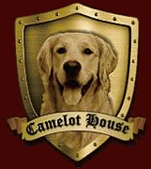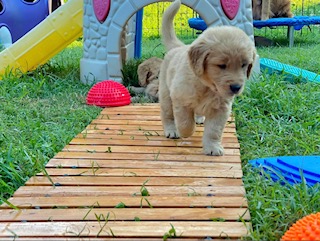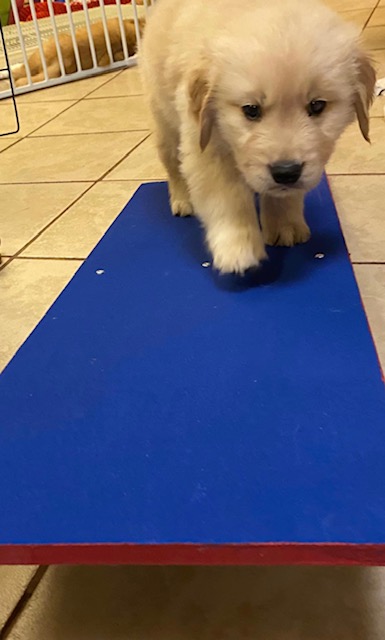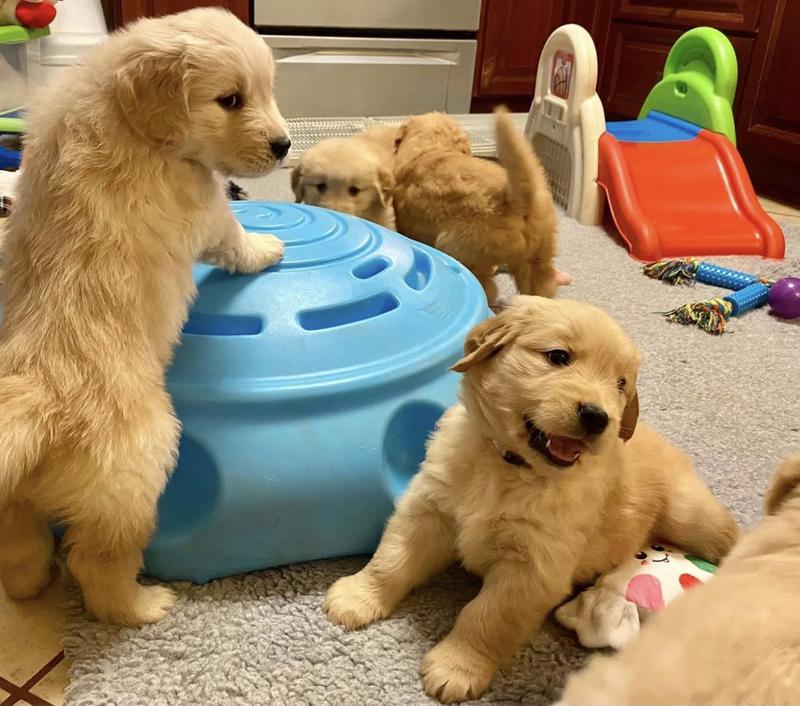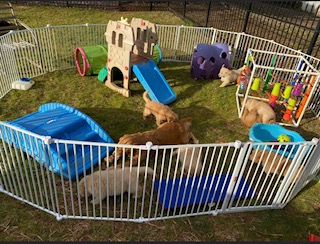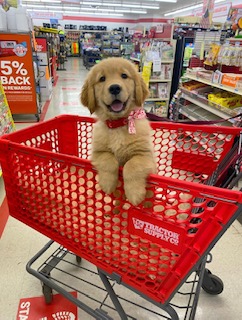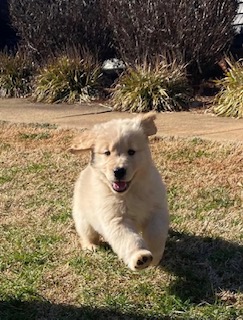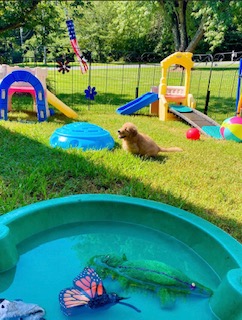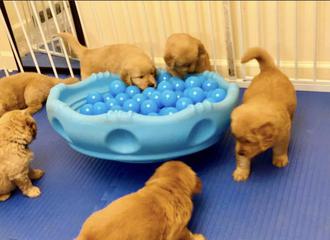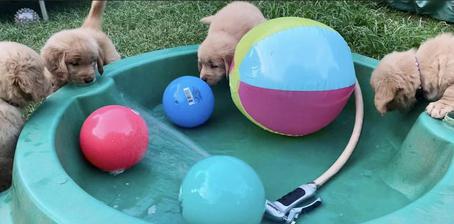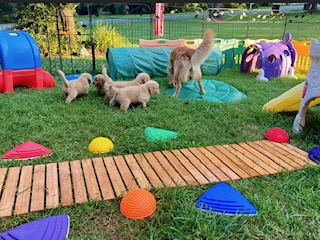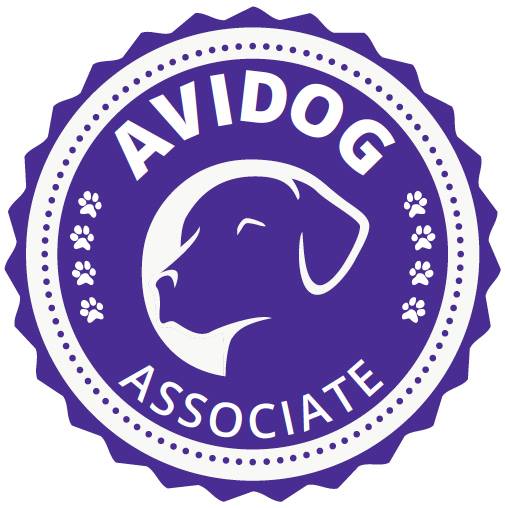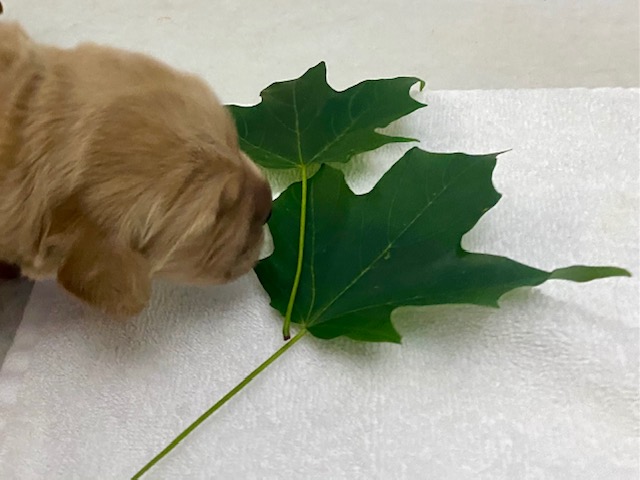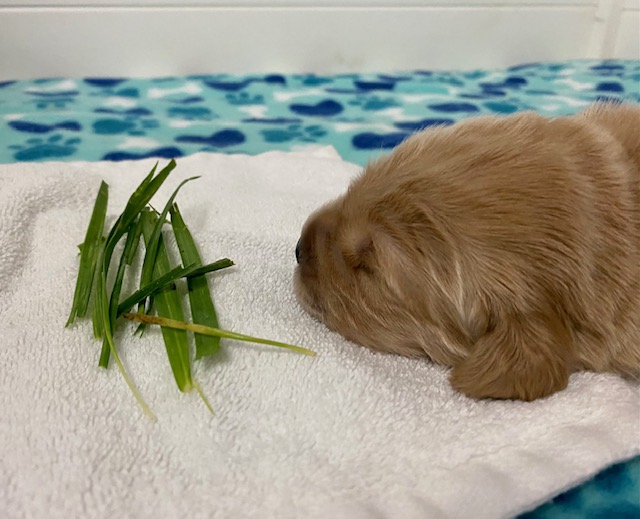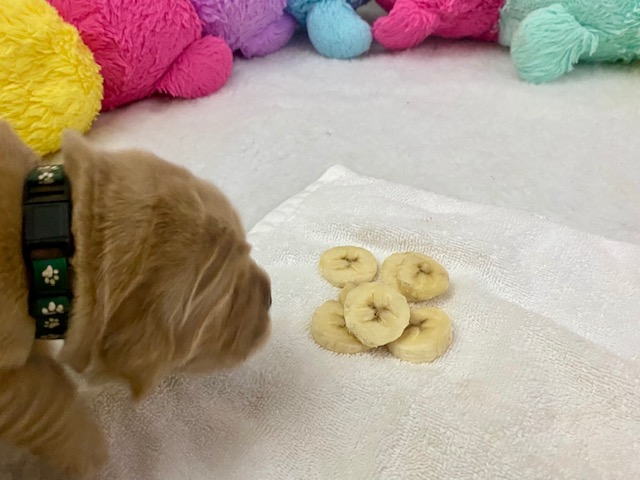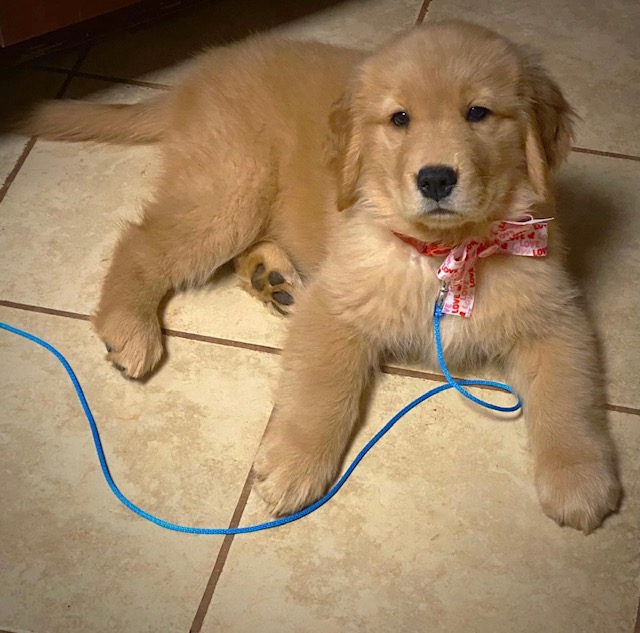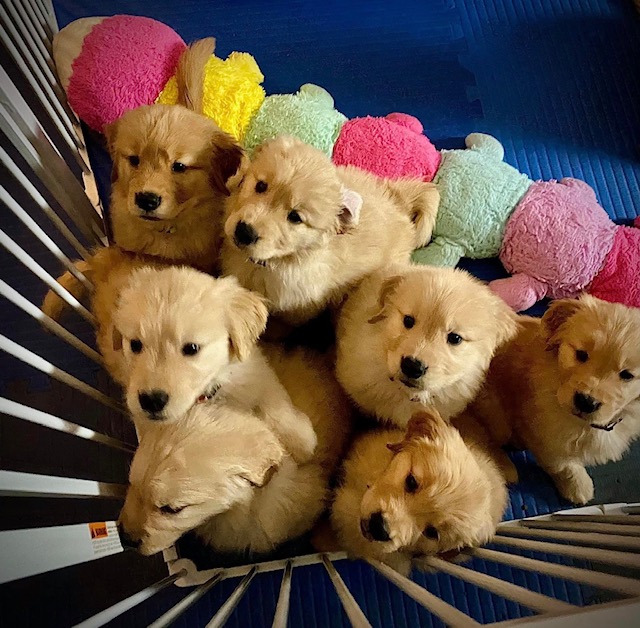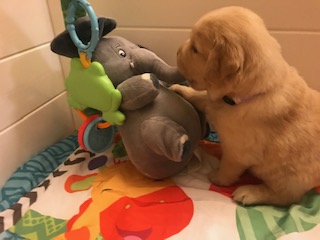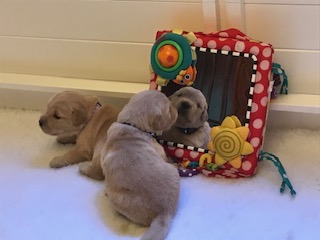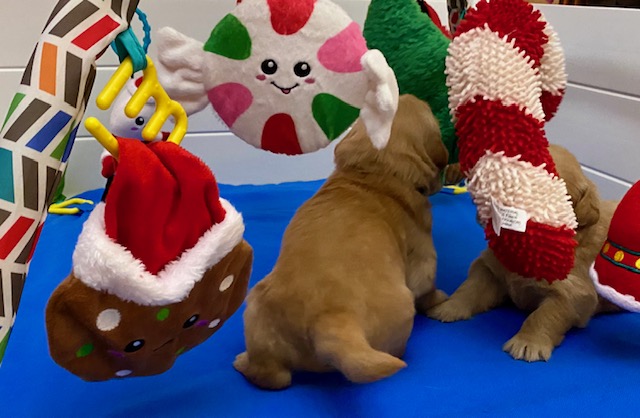Puppy Training - Golden Retrievers of Camelot House ~ Training program for Golden Retrievers ~ Puppy Training in North Carolina
Raising Camelot House Puppies
Early Scent Introduction
During the neonate period of a pup's life (birth to two weeks of age), while the eyes are still closed and his/her ears are not fully developed, the pup's main senses are touch, taste and smell. All of these aid the pup while in the whelping box with his/her mother and siblings.
As a breeder, it is vital to utilize this early time in a pup's life to introduce new scents, which in turn will develop adult dogs with remarkable scent capabilities. By developing a pups' scenting ability, pups can go on to become service dogs or earn hunting/ field titles. Dr. Gayle Watkins developed Early Scent Introduction to expand a pup's scenting ability in these areas:
- Interest in scenting
- Ability to detect scents
- Ability to follow scents
Between 3 and 16 days of age, each pup is introduced to one new scent a day, scents that are typical to a home environment, outdoors and training.
Sound Training
An essential component of the early training is sound training. The pups are exposed on a daily basis to sounds that can sometimes elicit fear in dogs, e.g. fireworks, thunderstorms, city sounds, etc. By exposing pups to these sounds before the fear period, the pups will become desensitized to them and should not have an issue with sounds that cause so many dogs to become fearful throughout life. It also involves placing items in the puppy pen that make various sounds in an effort to reduce startle reflex, such as the Avidog Adventure Box, along with every day household sounds. Testimonial - "Moose is good about sounds. He just sits and listens if a loud vehicle goes by. And when the UPS guy came - he didn't bark at his truck or at the package by the door or at the knock at the door." ~ Amanda
.
Training by Play
Once the puppies are walking, they are exposed to toys of all textures,
sizes, sounds, shapes, etc. to engage them. They also have tunnels and
various toys to go through and climb upon. Giving them opportunities to
work through situations where they are encouraged to utilize their minds
is of major importance.
- Golden Retrievers of Camelot House, LLC Web Solutions by WDBB
Golden Retrievers of Camelot House ~ Statesville, NC ~ Golden Retrievers Charlotte, NC area
Golden Retrievers of Camelot House - Puppy Training
Social Training
An important component is the socialization of pups. This begins soon after birth with visitors to our home, folks who hold and love on the pups. We plan for the pups to be around people of all ages from the beginning.
Depending upon the nomograph results, we will take safe visits to public places or friends' and relatives' homes to expose the pups to new people, environments, sights, smells, sounds, textures, etc. With the pups leaving at 8 1/2 weeks of age, our time is limited in what can be accomplished with socialization in public places; therefore, we strongly encourage owners to incorporate this type of socialization into their pup's lives once they take them home.
Socialization must be a fundamental part of training during the first 16 weeks of life. Positive experiences during this early developmental period will have a direct tie to how they relate to new people and environments throughout life. Owners should continue to socialize their pups throughout life.
.
Potty Training
In the puppy area, there are trays in which the pups can potty. Pups are taken out periodically throughout the day for potty breaks. When pups leave, they are not house trained or alerting that they need to potty. House training is a process that takes months. I have found Avidog's Puppy Training Solution helpful to new owners in coaching them through a successful approach to the process.
Foundation
Puppies are like sponges and we believe it is our responsibility to insure the important developmental time period is utilized well. Owners are expected to continue with training once they take their pups home. We recommend they continue formal training with their pup for one year, though training continues through life. Our goal is to start pups off right by establishing a foundation upon which owners can build.
.
Tag Lines
Taglines are an incredible tool to use with a new pup. We encourage owners to familiarize themselves with this method
and utilize it when they take their
pup home. Information regarding
taglines can be found at these links:


